It's cold on the flatbed of the white Ford Ranger pickup. Despite my down jacket, gloves and thick woolen hat, the cold wind gets right into my bones. Winter is icy and clammy in Kabul. The sun has long been unable to penetrate the dense smog.
In front on the right, the white flag of the Taliban whips angrily in the wind. In the driver's cabin, huddled close together, three senior Taliban are talking. They are gesticulating wildly, but I don't understand a word they are saying. Even if I could hear them, I wouldn't understand them. My Pashto is about as bad as my Kurdish or Farsi.
Sitting with me on the cot are two young Taliban, one with an AK-47, the other with a fairly new M-4 from the U.S. Army's stockpile, which left billions of dollars worth of weapons behind in its utterly chaotic withdrawal from Afghanistan. The two boys are barely older than 15, their eyes as hard as their poses. After 10 days in Afghanistan, I don't take it quite so seriously anymore. Without exception, all the Talibs we have met so far have been friendly, helpful, and even joking in certain situations. They like to laugh a lot, the Taliban, unless a camera is pointed at them - then they play the tough guys. Similar to rappers in their sometimes silly videos - only with automatic assault rifles and camouflage jackets.
Disciplined but latently bored, they secure the right and left sectors of the vehicle. Because even though the Taliban are the undisputed top dog in Afghanistan, the IS keeps stalking them with bomb attacks, mostly with magnetic explosive devices under vehicles in the west of the city, where the Hazara in particular live. That's exactly where we're headed. To Sukhta Bridge, the drug hell of Kabul.
Sukhta means "burning". The scenery is absurd. The bridge is bustling with activity. Market stalls, market criers, fruit, vegetables, chickens. By Kabul standards, life is flourishing. Under the bridge, small groups of neglected men with sallow faces and lifeless eyes. They are as dirty as the ground on which they sit or lie. Some of them are completely unabashedly taking a shot as I walk past them. I am accompanied by two armed Taliban who are visibly tense. Many of the addicts are armed. And depending on what drug they are on - opium, heroin, Christal or hashish - the situation can escalate abruptly. My discomfort increases the deeper we go into this drug jungle. A sickening melange of smoke and excrement is omnipresent.
Suddenly, a man lies in front of us.
Despite the cold, I can smell that he is dead.
I know the sweet smell of decomposing bodies all too well from 10 years of conflict photography, unfortunately. Someone has placed a bag over his face. One of our companions pulls the bag from his face.
Milky dead eyes stare at me from a pale and sunken face. The dull hair is full of dirt, his beard amazingly well trimmed. The body is wrapped in a thin red blanket. It is cold at the almost dried riverbed, the temperatures drop below minus 10 degrees during the night. Presumably, the man fell asleep while intoxicated.
And then simply froze to death.
I shake my head, stand still for a moment. Try to imagine where he came from.
And what made him break.
As I turn to leave, I look at old Talib, who is accompanying us. His eyes are red. Has he been crying? We look into each other's eyes for a moment. For a brief moment, I am inclined to take him in my arms. Embarrassed, he clutches his AK-47 while I struggle for composure. Then we just nod at each other. The embarrassing moment of our shared touch is over.
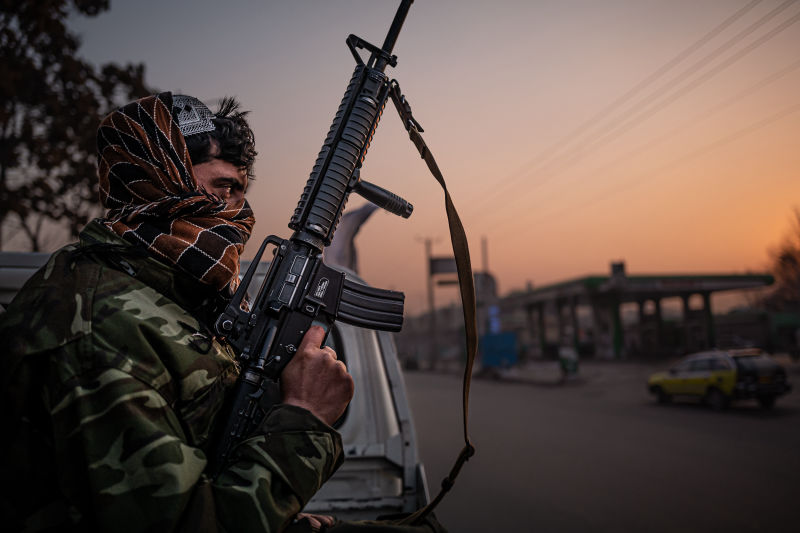
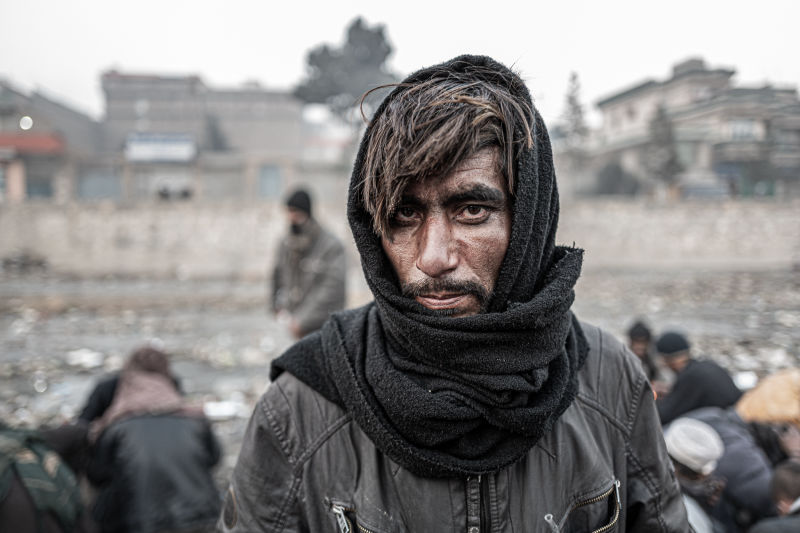
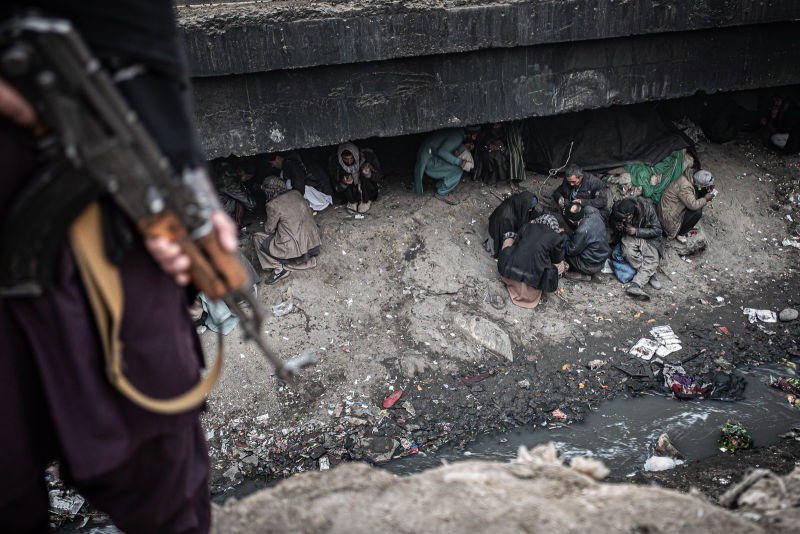
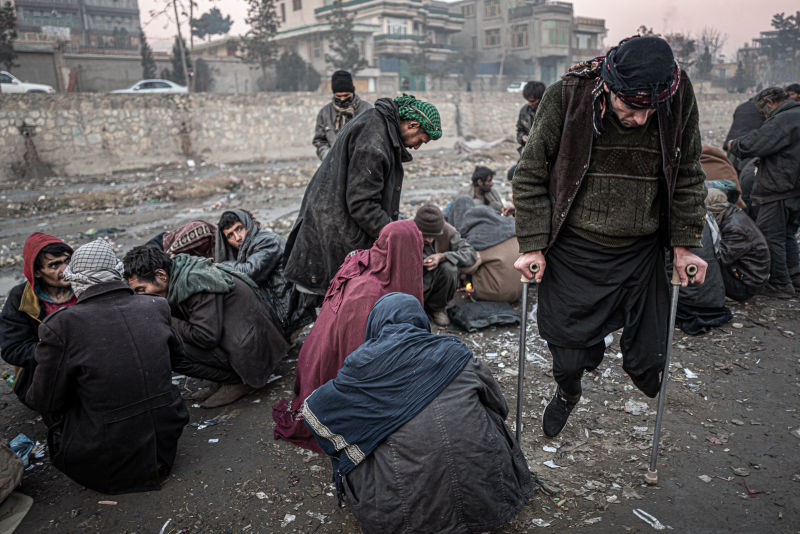
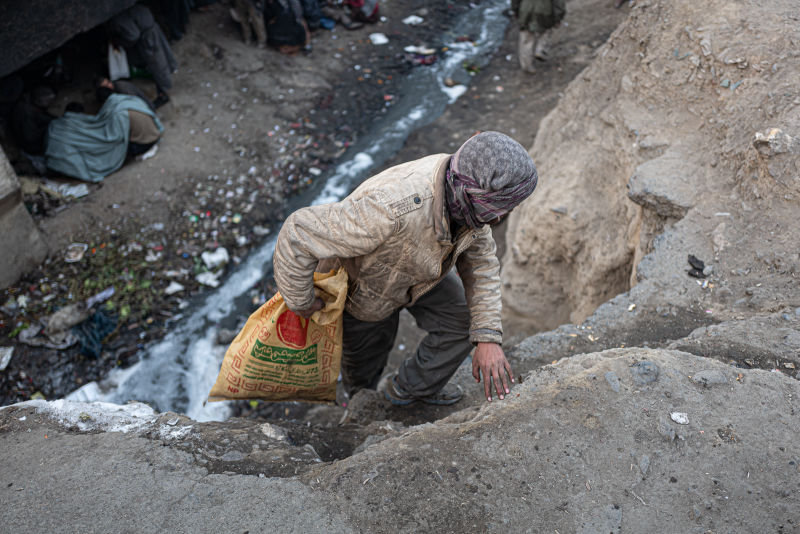
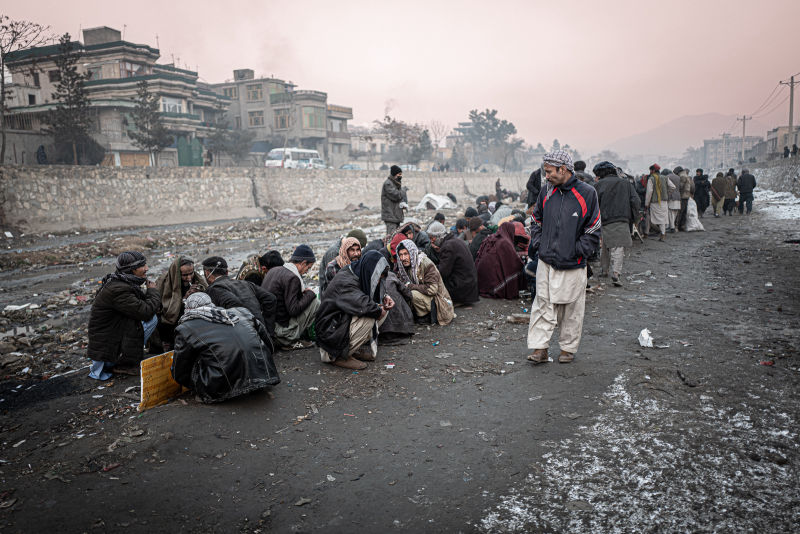
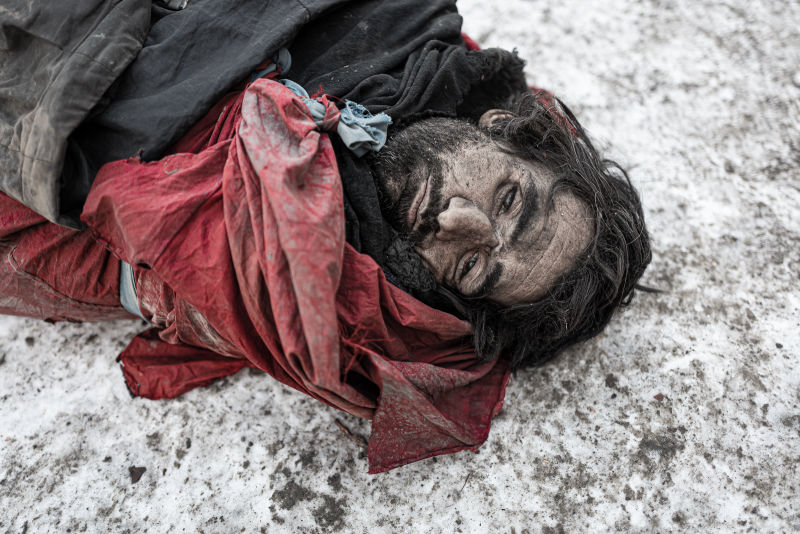
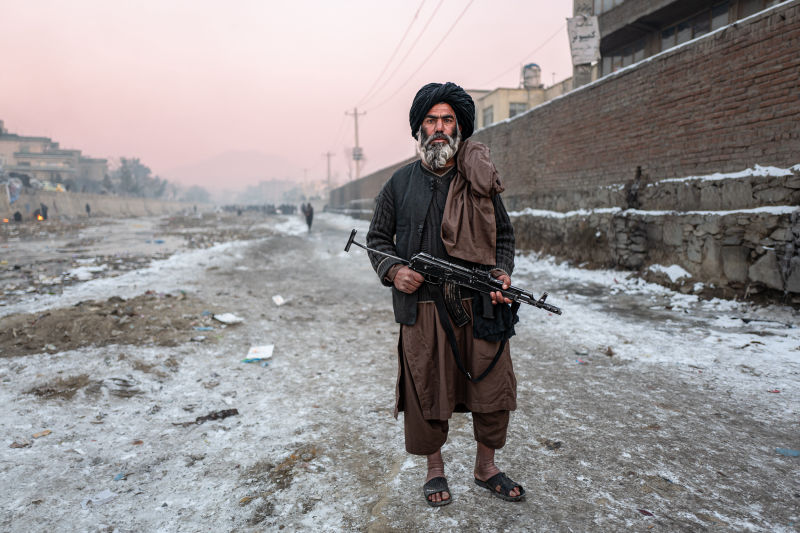
Follow